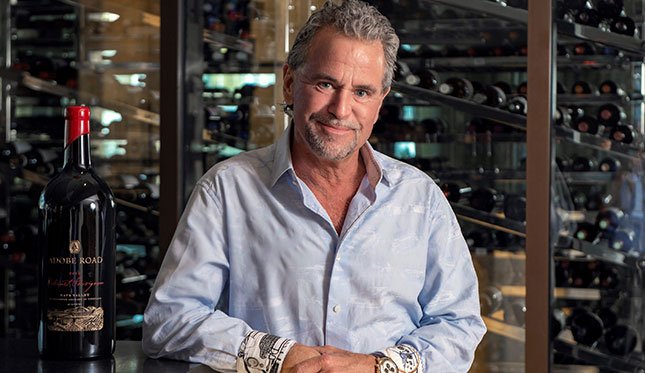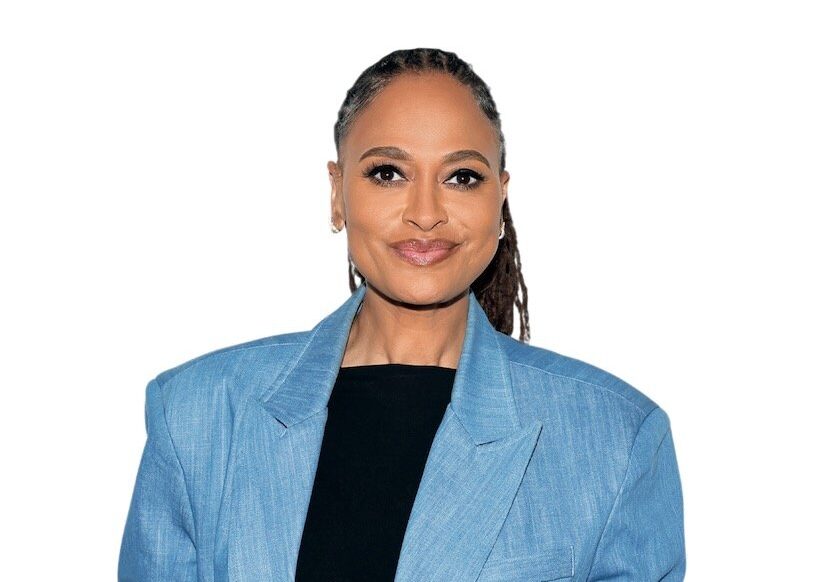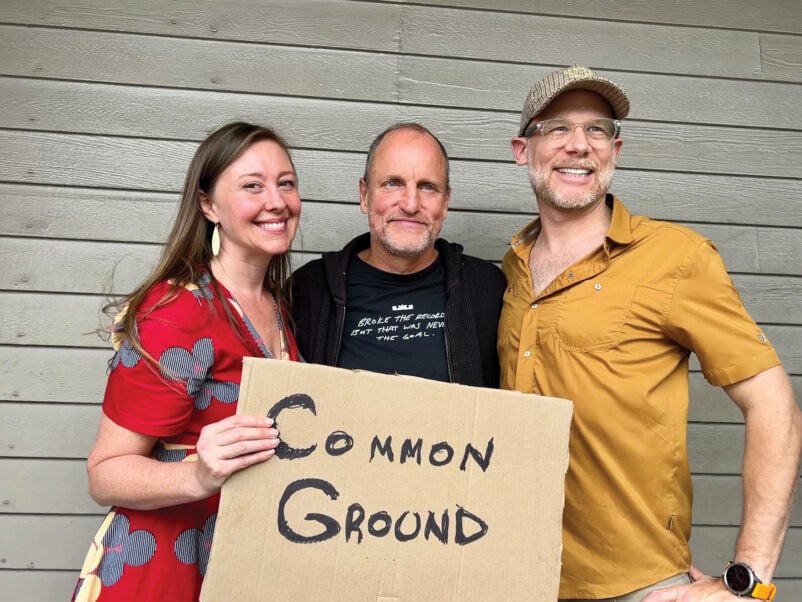Kevin Buckler’s motorsports journey has been fast and furious. As a race car driver and owner of The Racers Group team, he has won at the Rolex 24 at Daytona four times and the 24 Hours of LeMans once, in addition to numerous other titles and races. The sport is one of the most difficult in the world: “It’s physical. It’s hot. Then throw in the fear factor of crashing into a concrete wall,” Buckler says. But his passion for wine has led him into a business that can be just as competitive and nerve-racking.
As the CEO of the boutique Sonoma-based Adobe Road Winery, Buckler has embarked on an ambitious project—a wine-focused entertainment complex and tasting room in downtown Petaluma, Calif.—that could transform both the city’s economic landscape and his winery’s long-term prospects.
“We’re not being disruptors—that’s a term I really don’t like—but in a way it is a new concept. We’re so close to San Francisco, in a town that’s on the uptick,” says the 60-year-old entrepreneur. “It’s millennial, it’s hip, it’s experiential.”

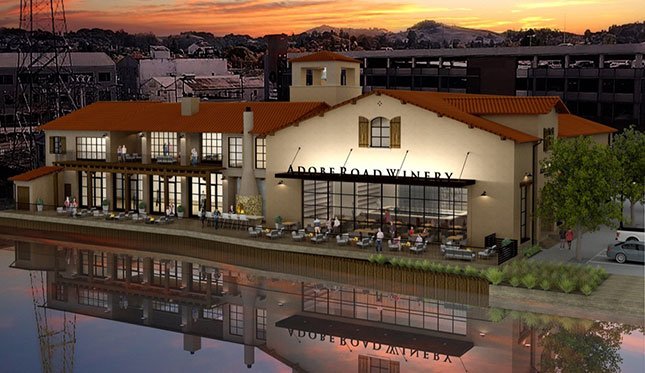
The complex, estimated to cost between $12 million and $15 million, will break ground this summer, just on the heels of the launch this month of the Adobe Road Racing Series, a new portfolio of premier wines. Worth caught up with Buckler to talk about developing a passion for wine, the challenges of being a vintner and what it takes to win in the winemaking industry.
How did you begin winemaking?
It started with my being invited to join a group of wine guys in Petaluma in 1998. Just three buddies in a little club. We were buying fruit and making one barrel of zinfandel, pinot noir and cabernet per year just for fun. We’d have 25 cases each for giving away to our friends. We were doing a pretty good job, and that’s when I started getting the bug.
At what point did you see it could be a real business?
As it grew more seriously, I bought out my other partners. So by 2002, it belonged to my wife and me. We called it Adobe Road based on the little area where we bought our pinot. Then my wife was really pissed. “What are we going to do now?” she said.

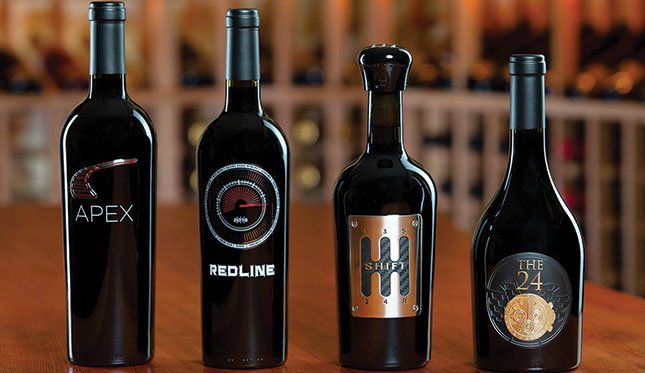
Winemaking is a notoriously difficult industry to make a profit in.
Purchasing the fruit [rather than producing it] was the right way to go. Biggest rule of winemaking: Do not own the property. Especially in Napa and Sonoma, the cost makes it almost impossible. And you can get hamstrung—you can’t grow Chardonnay in the same area as pinot, for example, or have certain other varietals. All the little ninja boutique wineries like me, we all purchase our fruit from extraordinary producers, like Beckstoffer or Sangiacomo.
And yet you are releasing a new line of specialty wines and have plans for a hospitality venue in downtown Petaluma. How have you made it to this point?
We have been very fleet-footed. In 2008, we were getting some good scores and had just built a beautiful warehouse facility to make the wine, and six months later the economy tanked. We kept making wine with a little club of 300 to 400 members. Then four years ago, a group of friends gave me a little nudge.
What kind of nudge?
They thought the wines were really good and said, “If you guys need a little help to get going, come back to us with a plan.” So I spent a year crafting my plan for growth. The day after presenting it to them, without my knowledge, $800,000 showed up in our company’s trust account—no contract, no operating agreement. I couldn’t believe they did that. So I went out and raised the money.
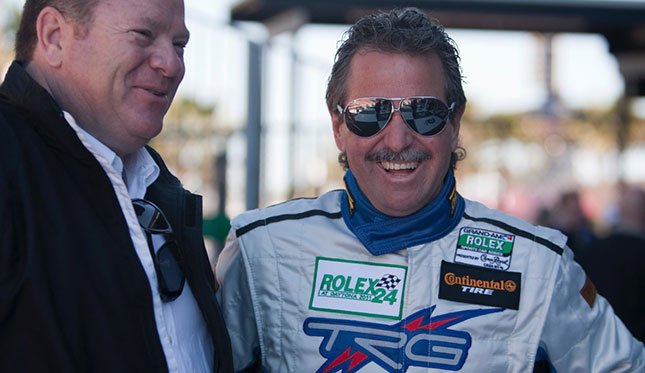
How were you doing this while racing?
I’m a total road warrior—I’m always working. I’ve had to cut back on racing the last couple of years because it’s a time suck. You can spend a lot of time in it, and at the end of the year you might not make a lot of money. And although we’re a good size sports car team, it’s not a life-changing experience financially.
Why did you choose Petaluma as the location for your project?
The industry is changing. People are changing. A long drive from San Francisco—2.5 hours in traffic—for a snooty tasting up north isn’t really “in” right now. I thought, “If I go to Napa or Sonoma, how am I going to differentiate myself?” But if you cross the Golden Gate and drive north past Marin, the first city in Sonoma County is Petaluma. It has an old town feel with the funk and vibe of an Austin, Texas, with a wine country flavor.
Going forward, what’s your main focus?
Our winery’s growth. Adobe Road sells 5,000 cases a year and we want to grow to maybe 10,000. But the Racing Series alone might exceed 5,000 and take us to 50,000. Even that’s considered small, but it could position us on track for maybe a liquidity event further down the line.
Is that your goal? To get to a point where you can be acquired?
I’d like to be at the point to make the decision. I want to get there and have my partners look at a $100 million liquidity event and potentially say, “Nah, pass.” We’re having a good time.

